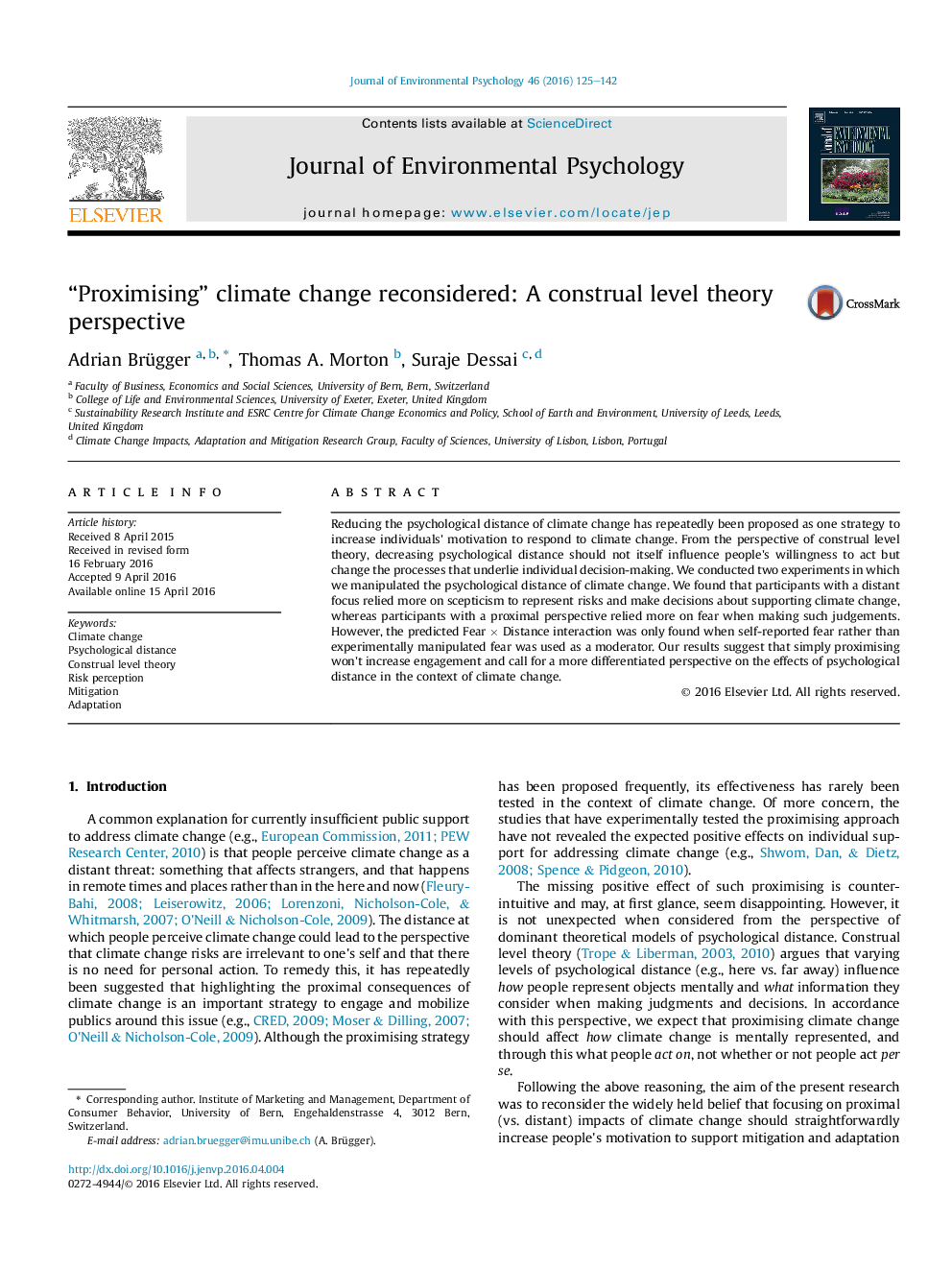| Article ID | Journal | Published Year | Pages | File Type |
|---|---|---|---|---|
| 885573 | Journal of Environmental Psychology | 2016 | 18 Pages |
•We examined the effect of psychological distance in the context of climate change.•Focusing on proximal climate change does not increase willingness to respond.•Instead, varying psychological distance changes what information people act on.•It's time to adopt a more differentiated view on the role of psychological distance.
Reducing the psychological distance of climate change has repeatedly been proposed as one strategy to increase individuals' motivation to respond to climate change. From the perspective of construal level theory, decreasing psychological distance should not itself influence people's willingness to act but change the processes that underlie individual decision-making. We conducted two experiments in which we manipulated the psychological distance of climate change. We found that participants with a distant focus relied more on scepticism to represent risks and make decisions about supporting climate change, whereas participants with a proximal perspective relied more on fear when making such judgements. However, the predicted Fear × Distance interaction was only found when self-reported fear rather than experimentally manipulated fear was used as a moderator. Our results suggest that simply proximising won't increase engagement and call for a more differentiated perspective on the effects of psychological distance in the context of climate change.
